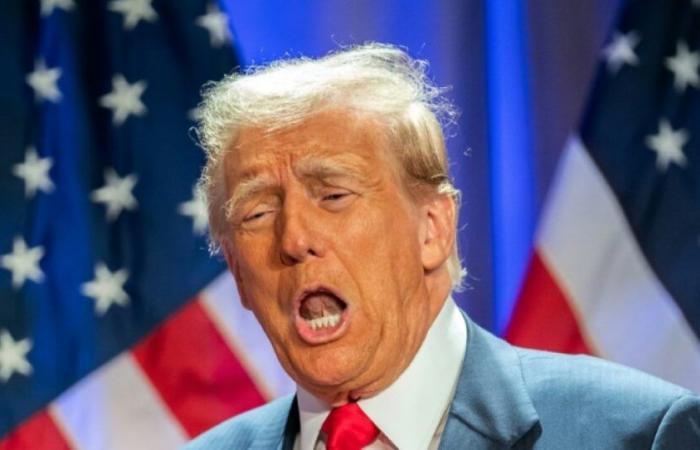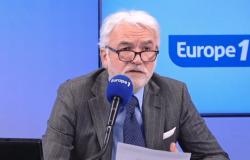By announcing 25% tariffs against Canada and Mexico, two of the United States' main trading partners and theoretically protected by a free trade agreement, President-elect Donald Trump reminded the rest of the world that he will spare no one.
“The simple fact that he is targeting Mexico and Canada, especially Canada, is just crazy. This is the closest and oldest ally of the United States, it’s a whole different world,” he says. Petros Mavroidis, professor at Columbia University, interviewed by AFP.
“He is taking the risk of alienating his allies,” he adds.
The two countries could have considered themselves safe: certainly the Canada-United States-Mexico free trade agreement (USMCA) must be reviewed from next year but it was signed during the first mandate from Mr. Trump, who then presented it as “the best and most important trade agreement ever signed by the United States”.
But the announcement of these customs duties, in addition to those reinforced against China, shows “that there is no difference” between allies and rivals of the United States in the mind of Donald Trump, underlines Erin Murphy, researcher for CSIS in Washington.
However, if for the rest of the world, “these decisions are clearly not welcome, they are not unexpected,” she adds.
And for good reason, the elected president had made customs duties the backbone of his economic policy during his campaign, announcing 10 to 20% on all products entering the United States, and between 60% and 100% for Chinese products.
The objective was threefold: to finance the tax cuts it planned, to encourage companies to come and produce in the United States to benefit from its internal market and to use customs duties as a bargaining chip for future trade negotiations.
But in the opinion of Bernard Yaros, economist for Oxford Economics, there is no doubt that trading partners in Europe or Asia will not hesitate to take retaliatory measures which “will really undermine growth”, both in the States -United than in the rest of the world.
– Follow your own path –
“Europe is not going to give (Donald) Trump what he wants. There will be customs duties on European products and Europe will apply them on a whole range of American products, including the most symbolic ones such as oranges, iPhones or whiskey”, anticipates Gary Hufbauer, researcher for PIIE.
The most advanced Asian countries, such as Japan or South Korea, should for their part “take retaliatory measures without going towards escalation”, thinks Ms Murphy.
Of course, the rest of the world could turn to the World Trade Organization (WTO) but nothing would force the United States to respect a decision that would be unfavorable to them.
“I would like the WTO to remain important, I think it still has a role to play. But I am starting to doubt it because even if the United States remains in the WTO, what do they do with it? Nothing, they don't propose any developments, they don't sign any agreement. They act as if they were no longer part of it,” regrets Mr. Mavroidis.
European states immediately wish to count on “constructive cooperation” with the future American government, as the President of the European Commission, Ursula von der Leyen, recalled during a press conference on Wednesday.
But the EU is ready to face possible threats and respond in the event of a return to trade tensions, assured the bloc's ambassador, Jovita Neliupsiene, to the press in Washington.
“It is essential that Europe can speak with one voice” on this subject, insists Mr. Mavroidis, “I hope that Germany and France will be able to put aside their differences in this matter because if they succeed , the rest of Europe will follow.
European countries should go even further, according to Petros Mavroidis: “if I were the European Commissioner for Trade, I would propose that we follow our own path and that we finalize free trade treaties with Mercosur, the India and the countries of the Trans-Pacific Agreement”, which the United States left in 2017, he said.






